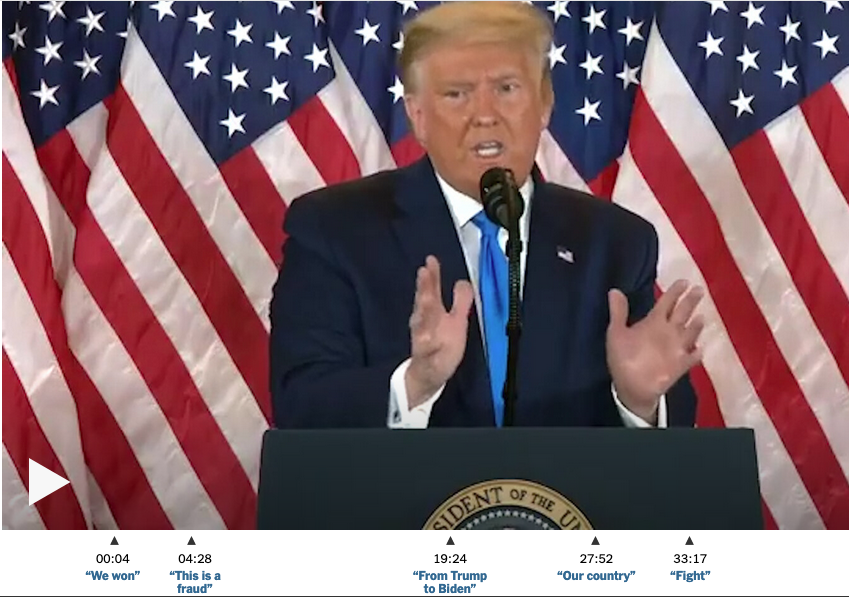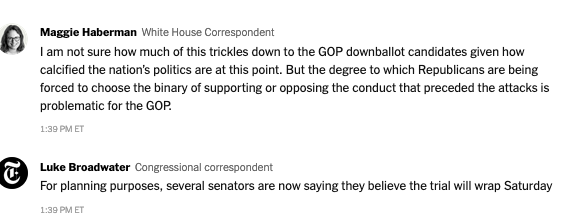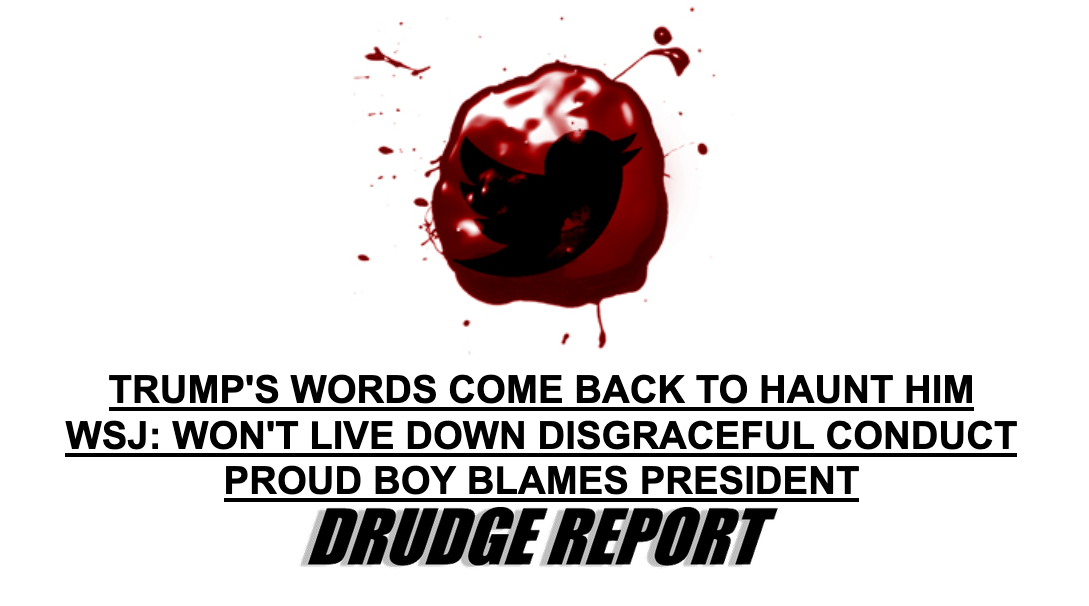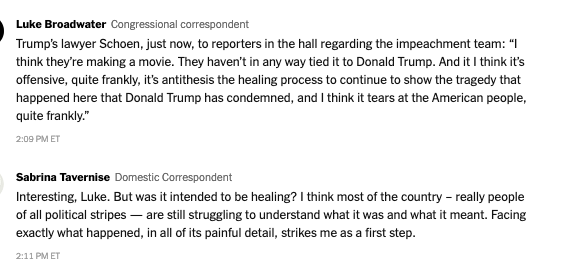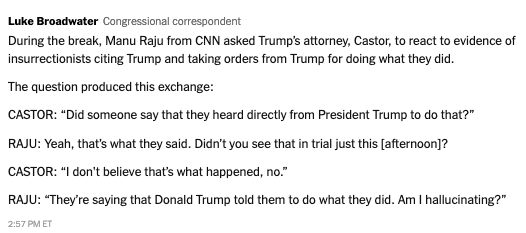WSJ - Editorial Board calls oui Trump’s disgraceful conduct.
Whether a former President ought to be subject to an impeachment trial is a matter of constitutional debate. Whether it’s prudent, if acquittal appears likely, is a related question. But wherever you come down on those issues, the House impeachment managers this week are laying out a visceral case that the Capitol riot of Jan. 6 was a disgrace for which President Trump bears responsibility.
Long before November, Mr. Trump was saying that the only way he could lose the election was if it were rigged. On the night of the vote, he tweeted, “they are trying to STEAL the election.” In his speech that night, he called it “a fraud on the American public,” and said, “frankly we did win.” Is it a surprise that some of his fans took his words to heart?
Instead of bowing to dozens of court defeats, Mr. Trump escalated. He falsely claimed that Vice President Mike Pence, if only he had the courage, could reject electoral votes and stop Democrats from hijacking democracy. He called his supporters to attend a rally on Jan. 6, when Congress would do the counting. “Be there, will be wild!” Mr. Trump tweeted. His speech that day was timed to coincide with the action in the Capitol, and then he directed the crowd down Pennsylvania Avenue.
Mr. Trump’s defenders point out that he also told the audience to make their voices heard “peacefully.” And contra Rep. Eric Swalwell, who argued the incitement to attack the Capitol was “premeditated,” it’s difficult to think Mr. Trump ever envisioned what followed: that instead of merely making a boisterous display, the crowd would riot, assault the police, invade the building, send lawmakers fleeing with gas masks, trash legislative offices, and leave in its wake a dead Capitol officer.
But talk about playing with fire. Mr. Trump told an apocalyptic fable in which American democracy might end on Jan. 6, and some people who believed him acted like it. Once the riot began, Mr. Trump took hours to say anything, a delay his defenders have not satisfactorily explained. Even then he equivocated. Imagine, Rep. Joe Neguse said, if Mr. Trump “had simply gone onto TV, just logged on to Twitter and said ‘Stop the Attack,’ if he had done so with even half as much force as he said ‘Stop the Steal.’”
The impeachment managers hurt their case by blaming only Mr. Trump for earlier clashes. “ Donald Trump, over many months, cultivated violence,” said Stacey Plaskett, the delegate for the Virgin Islands. But often those events were showdowns between left and right, with both seeking trouble. “When darkness fell,” the Washington Post reported after one melee, “the counterprotesters triggered more mayhem as they harassed Trump’s advocates, stealing red hats and flags and lighting them on fire.”
Yet there’s no defense for Mr. Trump’s conduct on Jan. 6 and before. Mitch McConnell is reportedly telling his GOP colleagues that the decision to convict or acquit is a vote of conscience, and that’s appropriate. After the Electoral College voted on Dec. 14, Mr. Trump could have conceded defeat and touted his accomplishments.
Now his legacy will be forever stained by this violence, and by his betrayal of his supporters in refusing to tell them the truth. Whatever the result of the impeachment trial, Republicans should remember the betrayal if Mr. Trump decides to run again in 2024.
